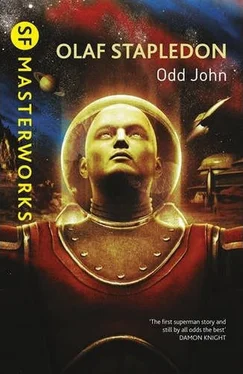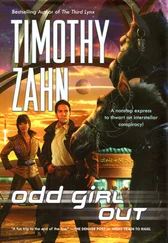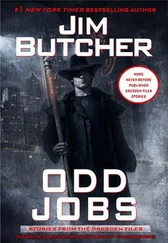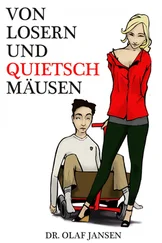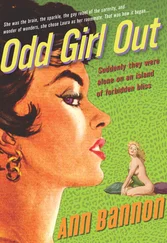Mr. Magnate glanced at his fellow passengers. We all nodded approval. “Thank you, sir,” said John, with solemn, respectful eyes. “And it all depends on money, doesn’t it? If I’m going to do anything big, I must get money, somehow. I have a friend who keeps saying, ‘Money’s power.’ He has a wife who’s always tired and cross, and five children, ugly dull things. He’s out of a job. Had to sell his push-bike the other day. He says it’s not fair that he should be where he is and— you where you are. But it’s all his own fault really. If he had been as wide awake as you, he’d be as rich as you. Your being rich doesn’t make anyone else poor, does it? If all the slum people were as wide awake as you, they’d all have big houses and Rollses and diamonds. They’d all be some use to the Empire, instead of being just a nuisance.”
The man opposite me tittered. Mr. Magnate looked at him with the sidelong glance of a shy horse, then pulled himself together and laughed.
“My lad,” he said, “you’re too young to understand these things. I don’t think we shall do much good by talking any more about them.”
“I’m sorry,” John replied, seemingly crushed. “I thought I did understand.” Then after a pause he continued: “Do you mind if we go on just a little bit longer? I want to ask you something else.”
“Oh, very well, what is it?”
“What do you think about?”
“What do I think about? Good heavens, boy! All sorts of things. My business, my home, my wife and children, and—about the state of the country.”
“The state of the country? What about it?”
“Well,” said Mr. Magnate, “that’s much too long a story. I think about how England is to recover her foreign trade—so that more money may come into the country, and people may live happier, fuller lives. I think about how we can strengthen the hands of the Government against the foolish people who want to stir up trouble, and those who talk wildly against the Empire. I think —”
Here John interrupted. “What makes life full and happy?”
“You are a box of questions! I should say that for happiness people need plenty of work to keep them out of mischief, and some amusement to keep them fresh.”
“And, of course,” John interposed, “enough money to buy their amusements with.”
“Yes,” said Mr. Magnate. “But not too much. Most of them would only waste it or damage themselves with it. And if they had a lot, they wouldn’t work to get more.”
“But you have a lot, and you work.”
“Yes, but I don’t work for money exactly. I work because my business is a fascinating game, and because it is necessary to the country. I regard myself as a sort of public servant.”
“But,” said John, “aren’t they public servants too? Isn’t their work necessary too?”
“Yes, boy. But they don’t as a rule look at it that way. They won’t work unless they’re driven.”
“Oh, I see!” John said. “They’re a different sort from you. It must be wonderful to be you. I wonder whether I shall turn out like you or like them.”
“Oh, I’m not really different,” said Mr. Magnate generously. “Or if I am, it’s just circumstances that have made me so. As for you, young man, I expect you’ll go a long way.”
“I want to, terribly,” said John. “But I don’t know which way yet. Evidently whatever I do I must have money. But tell me, why do you bother about the country, and about other people?”
“I suppose,” said Mr. Magnate, laughing, “I bother about other people because when I see them unhappy I feel unhappy myself. And also,” he added more solemnly, “because the Bible tells us to love our neighbours. And I suppose I bother about the country partly because I must have something big to be interested in, something bigger than myself.”
“But you are big, yourself,” said John, with hero-worship in his eyes, and not a twinkle.
Mr. Magnate said hastily, “No, no, only a humble instrument in the service of a very big thing.”
“What thing do you mean?” asked John.
“Our great Empire, of course, boy.”
We were arriving at our destination. Mr. Magnate rose and took his hat from the rack. “Well, young man,” he said, “we have had an interesting talk. Come along on Saturday afternoon about 2.30, and we’ll get the chauffeur to give you a quarter of an hour’s spin in the Rolls.”
“Thank you, sir!” said John. “And may I see Mrs. Magnate’s necklace? I love jewels.”
“Certainly you shall,” Mr. Magnate answered.
When I had met John again outside the station, his only comment on the journey was his characteristic laugh.
CHAPTER V
THOUGHT AND ACTION
DURING the six months which followed this incident, John became increasingly independent of his elders. The parents knew that he was well able to look after himself, so they left him almost entirely to his own devices. They seldom questioned him about his doings, for anything like prying was repugnant to them both; and there seemed to be no mystery about John’s movements. He was continuing his study of man and man’s world. Sometimes he would volunteer an account of some incident in his day’s adventure; sometimes he would draw upon his store of data to illus trate a point in discussion.
Though his tastes remained in some respects puerile, it was clear from his conversation that in other respects he was very rapidly developing. He would still spend days at a stretch in making mechanical toys, such as electric boats. His electric railway system spread its ramifications all over the garden in a maze of lines, tunnels, viaducts, glass-roofed stations. He won many a competition in flying home-made model aeroplanes. In all these activities he seemed at heart a typical schoolboy, though abnormally skilful and original. But the actual time spent in this way was really not great. The only boyish occupation which seemed to fill a large proportion of his time was sailing. He had made himself a minute but seaworthy canoe, fitted both with sail and an old motor-bicycle engine. In this he spent many hours exploring the estuary and the sea-coast, and studying the sea-birds, for which he had a surprising passion. This interest, which at times seemed almost obsessive, he explained apologetically by saying, “They do their simple jobs with so much more style than man shows in his complicated job. Watch a gannet in flight, or a curlew probing the mud for food. Man, I suppose, is about as clever along his own line as the earliest birds were at flight. He’s a sort of archiopteryx of the spirit.”
Even the most childish activities which sometimes gripped John were apt to be illuminated in this manner by the more mature side of his nature. His delight in Comic Cuts , for instance, was half spontaneous, half a relish of his own silliness in liking the stuff.
At no time of his life did John outgrow his childhood interests. Even in his last phase he was always capable of sheer schoolboy mischief and make-believe. But already this side of his nature was being subordinated to the mature side. We knew, for instance, that he was already forming opinions about the proper aims of the individual, about social policy, about international affairs. We knew also that he was reading a great deal of physics, biology, psychology, astronomy; and that philosophical problems were now seriously occupying him. His reaction to philosophy was curiously unlike that of the normal philosophically minded adult human being. When one of the great classical philosophical puzzles attracted his attention for the first time, he plunged into the literature of the subject, read solidly for a week, and then gave up philosophy entirely till the next puzzle occurred to him.
Читать дальше
